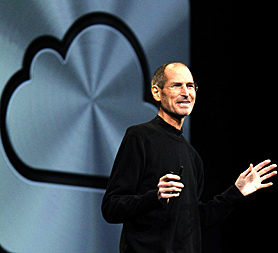Facebook forever? Death and the digital legacy
Sharing our lives on social networks is now commonplace, but what happens when we are gone? Channel 4 News finds people are thinking more carefully about their digital legacy.
The Apple iCloud launched earlier this week joining Facebook, Twitter and other services in persuading us to store many aspects of our lives – from photographs to our location to the most personal of messages on their webservers – where they will be kept forever.
What makes the Apple iCloud different is that it is automatic – as soon as a photograph is taken on an iPhone it is transmitted to their servers and will be stored in perpetuity.
So the question now is what happens to our digital profiles once we die?
In the past it was the rich powerful and famous that had memorials built for them in order for their history to survive their death. Now thanks to the way we use the internet many of us are effectively creating our own online memorials that will live on and even evolve after we pass away.
After I die, this is what would be left behind: intimate photographs, the places I have been, the random thoughts in status updates and who I was friends with. But most users never think about this scenario and what they leave behind.

Digital afterlife
Kelly Harmer was forced to confront these issues after a near fatal car crash. She is not alone, new research shows that 53 per cent of us store “treasured possessions” online. More than half of internet users consider photos on Facebook and their email on services to be treasured possessions and 11 per cent will include digital inheritance in their wills.
The importance placed on our digital inheritance raises questions however on its potential abuse. In a high profile case last month, a 25 year old man was jailed by Reading magistrates court for posting abusive messages on the Facebook profiles of dead children a practice known as ‘trolling.’
For bereaved families, it can be a tough choice whether to leave Facebook profiles up as a tribute, or delete the profile.
As more and more of those who have lived online end up here, ever greater levels of personal information will end up on so called cloud- services like iCloud, Facebook, Gmail.
Where once a headstone inscription was a handful of pithy words, the volume of information stored online about a deceased person will soon be so large that it could more than fill every headstone in the Britain.
As more of us contemplate our eventual digital demise, we might just start to think more carefully about the information stored in the cloud for our loved ones to discover when we have gone.




